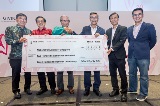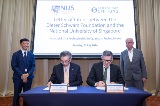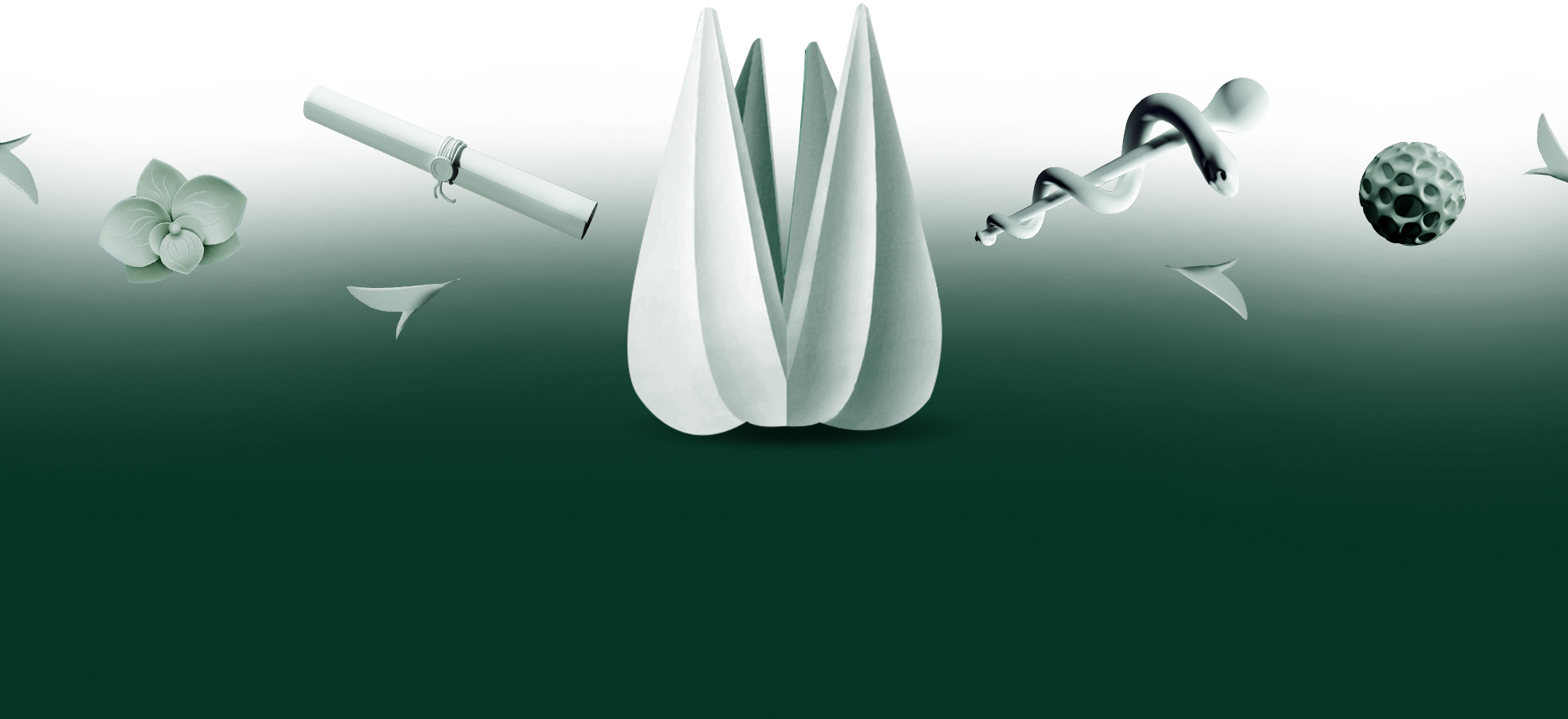A diverse field that is associated with everything from biomolecules over cells to entire ecosystems, biological sciences, or the science of life, is among the most important sciences and at the heart of many societal issues. Understanding biological systems and processes is key to many challenges faced by Singapore and the world today.
On 14 October 2022, members from the Tan Jiak Kim Circle (TJK Circle) were invited for an exclusive visit to the Department of Biological Sciences at the National University of Singapore (NUS). Guests were treated to a unique insight into how the Department harnesses the power of emerging technologies to break new grounds in improving human healthcare, enhancing food security, and preserving our rich biodiversity.
The visit is part of a series of specially curated stewardship events where members of the TJK Circle have the opportunity to experience the University’s efforts in innovation and enterprise, towards shaping a better future for all.
The TJK Circle honours Mr Tan Jiak Kim, who led the local community to raise funds to establish Singapore’s first medical college in 1905 and thus laid the foundation for an institution that would later become NUS. The TJK Circle recognises donors who have made an annual gift of S$10,000 to below S$100,000 to the University.
At the visit, guests experienced a guided tour of the Centre for BioImaging Services (CBIS), the NUS Research Centre on Sustainable Urban Faming (SUrF) and the Cryoelectron Microscopy Facility.
 Prof Thorsten Wohland sharing various projects conducted at the CBIS with guests at the event.
Prof Thorsten Wohland sharing various projects conducted at the CBIS with guests at the event.
At CBIS, Professor Thorsten Wohland, Director of the Centre, shed light on how the Centre advances biological knowledge at the molecular level through the application of biological imaging by light and electron microscopy technologies. Prof Wohland and his team also shared various projects that they are working on at the Centre, including using fluorescence microscopy and machine learning to fight dengue in Singapore.
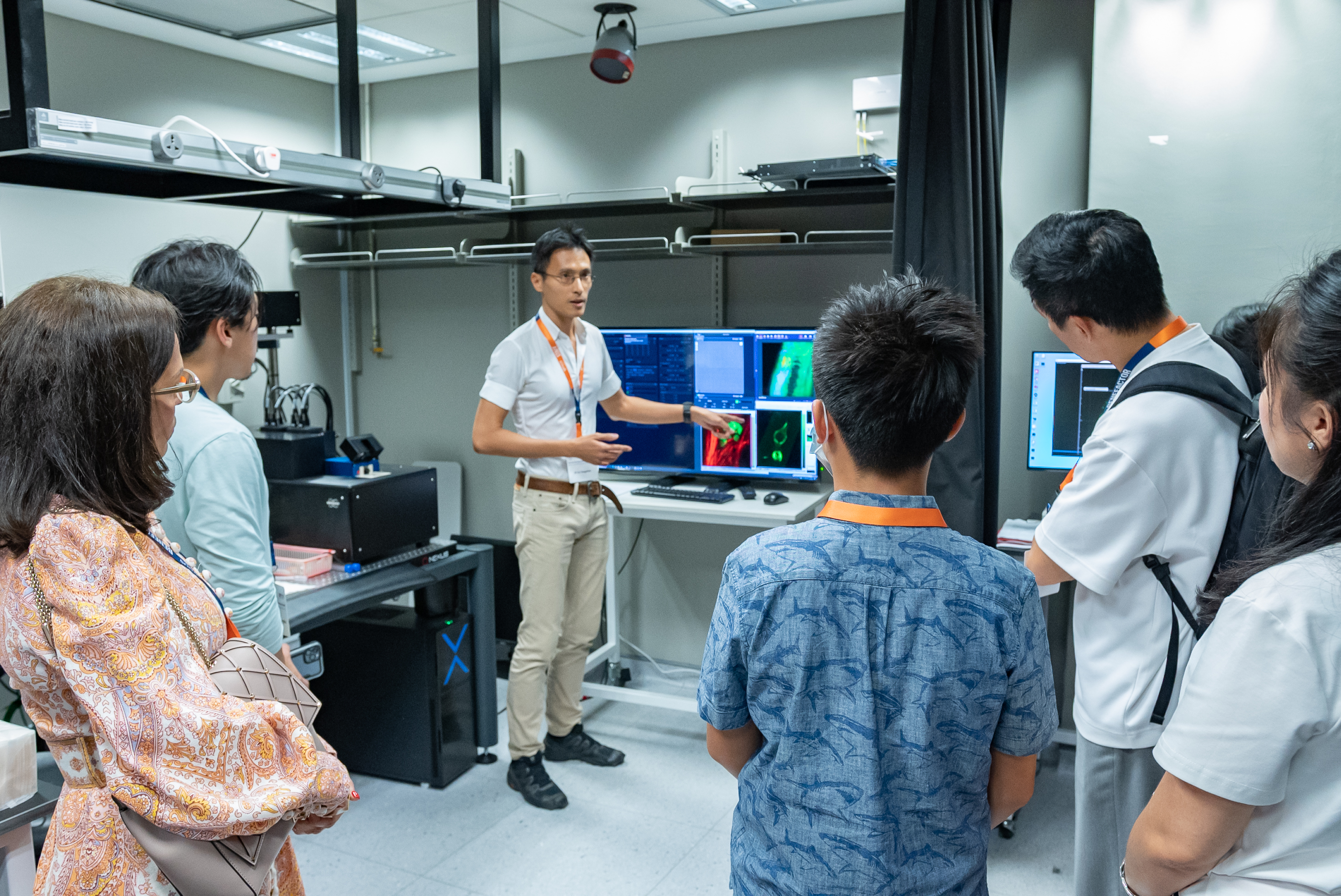
Dr Lin Yangchen, CBIS Scientific Officer, demonstrating how light microscopy works.
Guests were then treated to an exclusive demonstration of the Cryoelectron Microscopy Facility’s flagship instrument, the FEI Titan Krios. The state-of-the-art transmission electron microscope has been used to collect high-resolution images of viruses and other biological specimens.
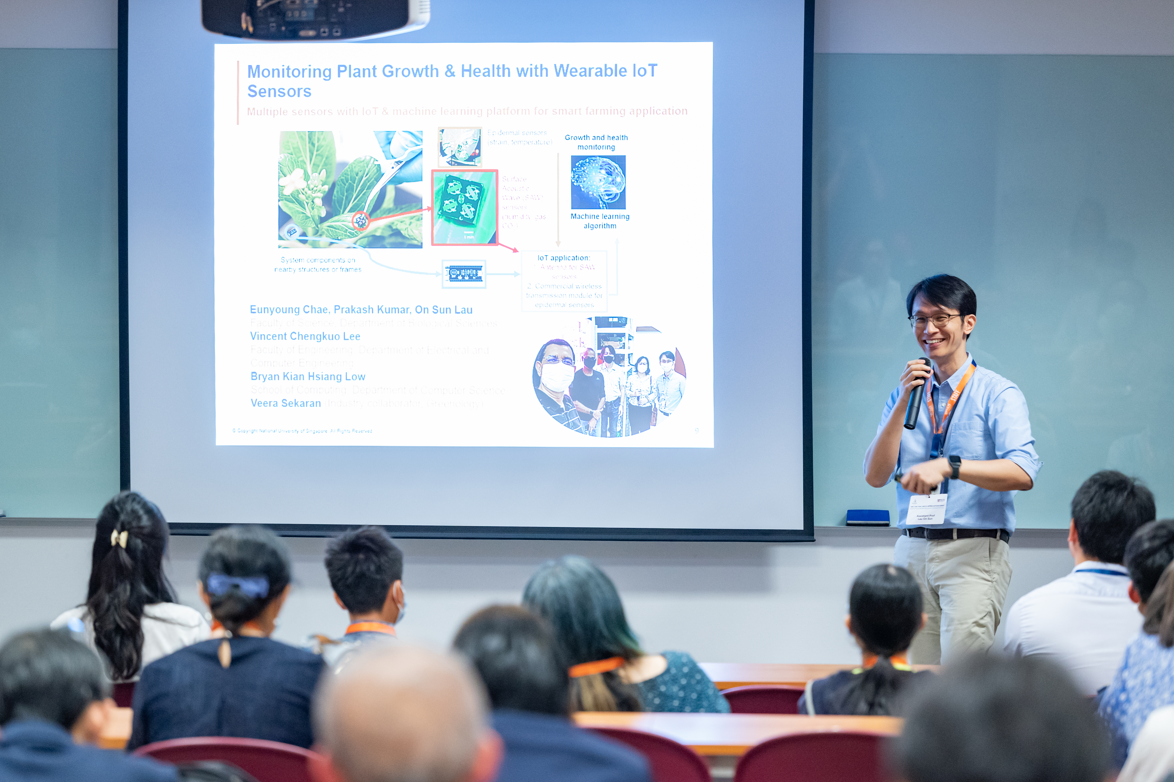
Dr Lau On Sun sharing key innovations at SUrF that aims to solve urban farming challenges.
Dr Lau On Sun, Associate Director of SUrF and Assistant Professor at the Department, welcomed guests to SUrF with highlights on how the centre is driving key innovations that aim to solve urban farming challenges. These smart agricultural solutions will contribute to Singapore’s initiative to produce 30 percent of the nation’s nutritional needs locally by 2030. Guests were also able to tour the indoor growth room with different light wavelengths, which included a close-up view of lab grown vegetables and strawberries.

Guests enjoying an exclusive close-up view of lab grown vegetables at SUrF's indoor growth room.
Lastly, Dr Luo Min, Assistant Professor at the Department’s Structural Biology Labs, shared ground-breaking research on unraveling and targeting disease-causing proteins for therapeutics. He emphasised that understanding protein dysfunction in the human body enables the understanding of organ dysfunction which could be prevalent in common diseases such as cancer, diabetes, heart diseases, Alzheimer’s and Parkinson’s disease.
Through the visit, guests were able to have a peek at the various facilities within the Department, hear from the faculty members and researchers themselves, as well as witness firsthand how their support has enabled the University to advance its mission to educate, inspire and transform, as a leading global university that is shaping the future.




